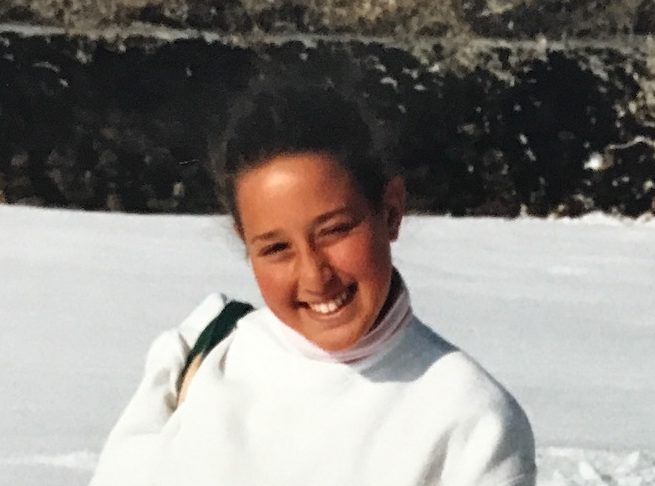The permissive culture of sexual degradation and harassment of girls and women starts earlier than we think. With the proliferation of the #MeToo Campaign on social media, I and so many of my women friends, have done a deep dive into our own experiences. I cast my mind back to my earliest memories of being sexually degraded by boys and was shocked to realize they started at age 12. I work everyday to build girls’ confidence, to fight agains the enormous wave waiting to topple their self-esteem during puberty. My realization made me wonder, what emotional impact does it have on girls to be sexually demeaned during those formative years and how had I never asked that question before? Furthermore, do boys who make sexually demeaning comments without consequence become men who sexually harass and assault women?
It was the end-of-year pool party for my 7th grade class at a local town pool. I had spent days deciding which of my new bathing suits I was going to wear that day. Well into puberty, with breasts and pubic hair, I felt good about what my changing body looked like in my aqua high-cut one-piece suit. I was at the point where I needed to shave my bikini line if I didn’t want my pubic hair showing outside my bathing-suit, so earlier that morning I had hastily shaved with a cheap, disposable razor. As was the case then and for years afterward until I started waxing, I had little red bumps along the area where I had shaved. I was sitting on the side of the pool, next to the boy I liked at the time, feeling happy and confident, when he turned to me and said “I can see where you shave your pussy.” I can still feel the shock that reverberated through my body at the crudeness of that comment. What was he doing speaking to me that way? I recoiled and deflated. To this day, I have no memory of what I said back to him, I just remember jumping back into the pool so that he couldn’t look at my body anymore.
The second incident occurred freshman year of high school in the hallway between class periods. I was new to the school but had a group of friends, including some sophomore boys. On that particular day, I had put together a mildly adventuresome outfit for my preppy school, tucking my mother’s olive green cardigan from her high school days into a pair of new olive green Francois Girbaud jeans, topped off by a wide black belt. Not unlike the day at the pool two years earlier, I felt good about my outfit and how my body looked. One of the sophomore boys turned to me and said “Your tits look good in that sweater.” Again, I was stunned by being spoken to that way. That wasn’t why I had worn that sweater! I don’t remember what I said in return, although it’s possible I said “Thank you.”
There are many elements that strike me about these memories: one, that the boys felt they had the right to say these things in the first place. That there was nothing wrong with their speaking about my body in that way and they feared no consequences from doing so. Two, that I had no idea what to say in return. I was totally unprepared to be spoken to that way, for my body and my sexuality to be open to casual and demeaning conversation. Three, what impact comments like these have on the confidence of pre-teen and teenage girls? Research shows that girls’ confidence peaks at age 9 and then begins the precipitous drop during pre-teen and teenage years. I can’t help wonder if the decline in girls’ confidence as puberty begins isn’t tied to the things boys say and do to girls that age. And finally, do boys who speak that way to girls go on to become men who harass women?
Thirty years later I can still remember these incidents down to the smallest detail, except for what I said in response. If I could go back in time, I would say to both these boys: “It is not OK for you to talk about my body that way.” As an adult, my responsibility is to educate pre-teens and teenagers on what they should say in the moment of being sexually degraded, helping them practice telling someone else “It is not OK for you to talk about my body that way.” Secondly, my job is to educate my own children of what is OK and not OK to say to other people. It sounds obvious, but believe it or not, I have told them they cannot call someone “stupid” but I have never told them they cannot comment on how a girl’s labia looks in her bathing suit or how a girls’ breasts look in a particular outfit. And ultimately, if my work is about helping girls build and keep their confidence as it begins to decline in the pre-teen years, I need to understand how much boys’ sexually demeaning comments play a part in that decline. We all need to recognize how early the seeds of sexual degradation are planted in our children’s social environment and pull them out at the root before they are able to grow.







